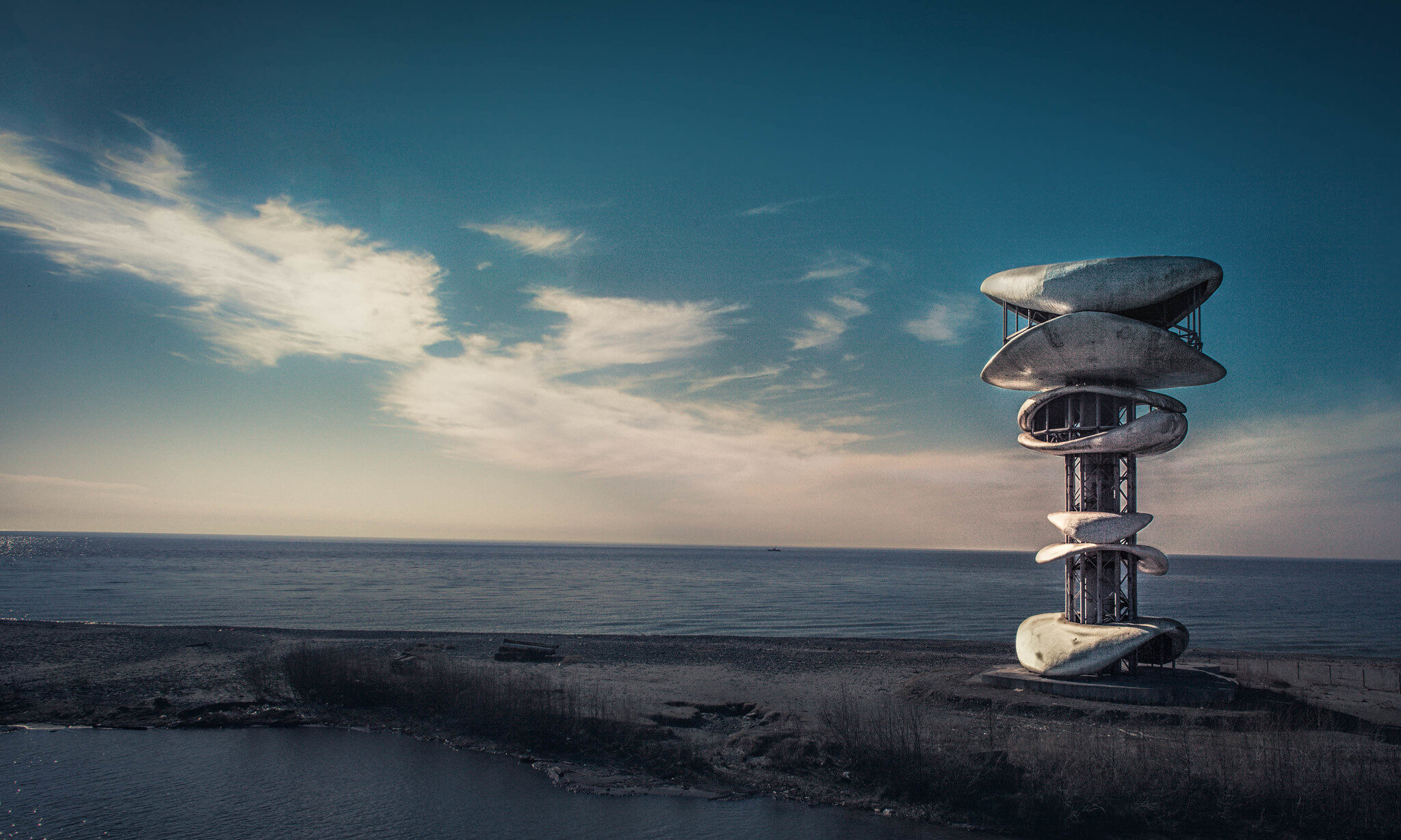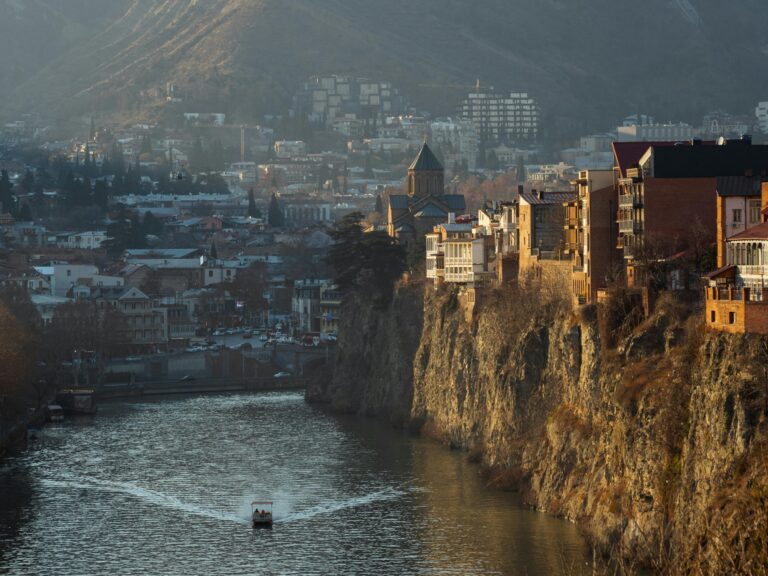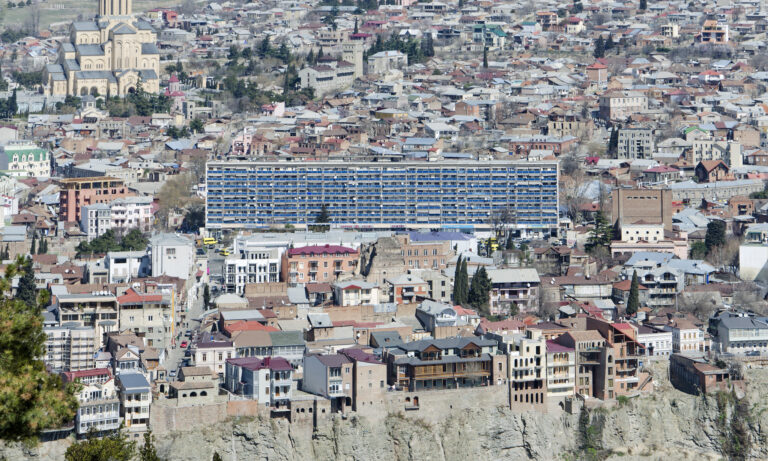
Georgian Dream, the ruling political party in Georgia, has awarded the Anaklia deep seaport construction project to a Chinese-Singaporean consortium. This strategic decision not only shifts Georgia’s Euro-Atlantic aspirations but also raises security concerns, given the geopolitical implications of increased Chinese involvement in the region.
The Anaklia Port Construction Project holds immense strategic significance for Georgia, both economically and politically. With an annual cargo capacity of 50 million tons and 2 million TEUs, the port’s plans are quite ambitious. With this capacity, Anaklia would become a major trading hub between Europe and Asia, accelerating Georgia’s economic development and attracting international capital. In addition, the port’s ability to handle the largest ships in the Black Sea will strengthen Georgia’s position as a hub for regional transportation, boosting the local economy. Besides, the port construction can aid Georgia’s economic diversification, as it would decrease the country’s reliance on Russia and consequently reduce Russian influence.
Because Anaklia serves a critical role in connecting Europe and Asia and – equally importantly – bypassing Russia, it presents an ideal opportunity for the country to strengthen its relations with Western partners, including NATO and the EU.
Nevertheless, on May 29, 2024, the Georgian Minister of Economy and Sustainable Development, Levan Davitashvili, announced that the winner of the public-private partnership selection process for the Anaklia port development was a Chinese-Singaporean consortium.
China as the remaining contender in the race
Perhaps the result of the tender should not have come as a surprise, given that Chinese companies were long expected to win the tender for the port. It was already their second attempt since the plan to build a deep seaport was announced in 2015. Then the whole plan was scrapped in 2020.
Last year, however, the Georgian government revisited the idea when it published a statement on receiving the expressions of interest in Anaklia Port Development Project. The statement specified that the state’s share in the port would be 51 percent, with the partner holding 49 percent.
Initially, four companies expressed their interest:
- Terminal Investment Limited (TIL), a Swiss-Luxembourg company;
- China Communication Construction Company Limited (CCCC) and China Harbor Investment, a Chinese-Singaporean consortium;
- China Construction Sixth Engineering Bureau, a Chinese state-owned company;
- Edgar Engineering, a company based in Israel.
According to the government’s announcement, only TIL and CCCC met the qualifications and advanced to the second phase.
Both entities requested additional time to prepare their documents. Yet TIL dropped out of the race. The Minister of Economy and Sustainable Development, Levan Davitashvili, alleged that the state’s 51 percent involvement was inadequate for the company and TIL anticipated receiving more profit than its investment justified. However, the ownership scheme was disclosed well before the competition, and TIL must have been aware of the deal’s conditions.
The Georgian Dream launched the procurement process for port construction separately and prior to concluding the investor selection phase. It should be taken into consideration that the investor and contractor are different parties to the project, and they must operate in coordination with each other. Therefore, the division of selection processes raises concerns about potential conflicts of interest between the parties. It is ambiguous whether any protective measures were applied to alleviate these challenges, emphasizing the significance of a more coherent and vigilant strategy in guiding such a large-scale infrastructure project.
The Global Footprint of CCCC and Its Subsidiaries
Concerns about the integrity of the companies involved in the Anaklia port project have been mounting. The China-connected companies set to implement the Anaklia port have faced sanctions multiple times due to allegedly non-standard activities.
In 2011, the World Bank debarred CCCC and its subsidiaries for fraudulent practices in a project in the Philippines. In 2014, the head of the Tanzania Ports Authority and his deputy faced charges for their involvement in corrupt practices. Allegedly, they accepted bribes in exchange for favoring the CCCC company with inflated terms for a port expansion project. Consequently, the Tanzanian government terminated the contract. Additionally, CCCC has also been known for workers’ rights issues in Uganda. Moreover, in 2020, the US Department of Commerce blacklisted 24 companies, including CCCC subsidiaries, for supporting Chinese military aspirations by developing artificial islands in the South China Sea.
Considering these incidents, the track record of CCCC and its subsidiaries raises significant concerns about their involvement in the Anaklia port project. The history of fraudulent practices underscores the potential risks associated with their participation. As Georgia moves forward with this strategic infrastructure project, it is imperative to consider these past issues carefully to ensure that the development is conducted transparently and ethically.
Implications for Regional Geopolitics
Involving state-owned companies from China in the construction of Anaklia deep seaport entails important consequences not only for Georgia but also for the broader region. Traditionally, the Black Sea Region (BSR) has been perceived as an area where only Russian and Western interests intersect. However, the participation of Chinese state-owned companies indicates Beijing’s emergence as a new actor in the region. Consequently, the Black Sea Region holds significant potential to become the next focal point of great-power competition.
Since Russia’s 2022 full-scale invasion of Ukraine, the region has been recognized as a strategically important area for NATO. According to NATO 2022 Strategic Concept, the alliance will support countries with Euro-Atlantic aspirations in countering the malign influence of other states. While the document alludes to challenges posed by authoritarian regimes without explicitly naming them, it specifically identifies Russia and China as regimes whose actions threaten the security of the Euro-Atlantic area. Additionally, Beijing’s attempts to control critical infrastructure are assessed as leverage to strengthen its influence and economic expansionism.
The security of the Black Sea has garnered significant attention from both the EU and the US. In 2023, the Black Sea Security Act of 2023 was submitted to the US House of Representatives. Under the bill, the United States should collaborate with NATO to ensure security in the region. Notably, the act addresses the challenges posed by China, asserting that countering Beijing’s coercive economic activities is crucial for maintaining stability in the region.
In 2023, during a meeting of the US Senate Foreign Relations Committee’s subcommittee, James C. O’Brien, Assistant Secretary of State for European and Eurasian Affairs, articulated the US stance on Chinese involvement in the Anaklia Port project. O’Brien emphasized that critical infrastructure such as the Anaklia port should not fall under the control of states known for their illicit practices.
It is noteworthy that O’Brien was not the only US official to caution Tbilisi. During a visit to the United States by the former Georgian Prime Minister, Mamuka Bakhtadze, the former US Secretary Mike Pompeo emphasized that the construction of Anaklia Port could strengthen Georgia’s ties with free-market economies and mitigate the economic influence of Russia and China.
NATO’s strategic interests in the Black Sea encompass not only the security of Western countries but also the energy domain. The Transport Corridor Europe-Caucasus-Asia (TRACECA), also known as the ‘Middle Corridor,’ aims to connect Europe with Central Asia via the Black Sea Region. As an alternative to the northern route that connects Europe and Asia through Russia, the Middle Corridor has gained appeal as European countries seek to reduce the EU’s energy dependency on Russia.
In 2023, 34 percent of the EU’s natural gas and oil imports came from Black Sea littoral states. Additionally, a memorandum signed between Azerbaijan and the EU envisions importing 20 billion cubic meters of gas to the EU by 2027. The Anaklia port project represents a critical component of TRACECA, which can significantly enhance the transit capacity of the route.
For both NATO and the United States, the primary security challenge in the Black Sea Region emanates from Russia. However, this perspective does not overlook the potential challenges arising from cooperation with China. In this context, Beijing is seen not only as an actor pursuing an expansionist economic policy but also as one that enhances its cooperation with Russia despite the latter’s aggressive foreign policy. The Sino-Russian relations extend beyond economic ties to include security cooperation. In 2020, Beijing participated in ‘Kavkaz 2020’, a military exercise organized by Russia. This close military cooperation between China and Russia suggests that increasing Chinese influence in the Black Sea Region could undermine NATO’s vital interests and presence in the region.
As such, while addressing the immediate threat posed by Russia, NATO and its allies must also develop strategies to counterbalance China’s growing footprint in the region. Ensuring a stable and secure Black Sea Region requires a multifaceted approach that considers the intertwined influences of both Russian and Chinese ambitions. This will be crucial in protecting the strategic interests of the alliance.
Written by
Aksana Akhmedova
Aksana Akhmedova is a researcher at Civic IDEA, Georgia, focusing on foreign influence, with a keen interest in Middle Eastern politics and international security. She holds a BA in international relations from Ivane Javakhishvili Tbilisi State University, having also studied at Çukurova University in Turkey through the Erasmus+ program.
Ketevan Gelashvili
Ketevan Gelashvili is a lawyer and researcher at Civic IDEA. She holds a BA in law with a minor in international relations from the Free University of Tbilisi. Her areas of interest include foreign malign influence, human rights, and international order.


